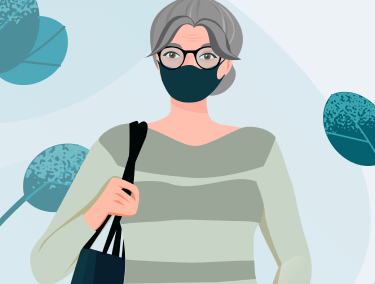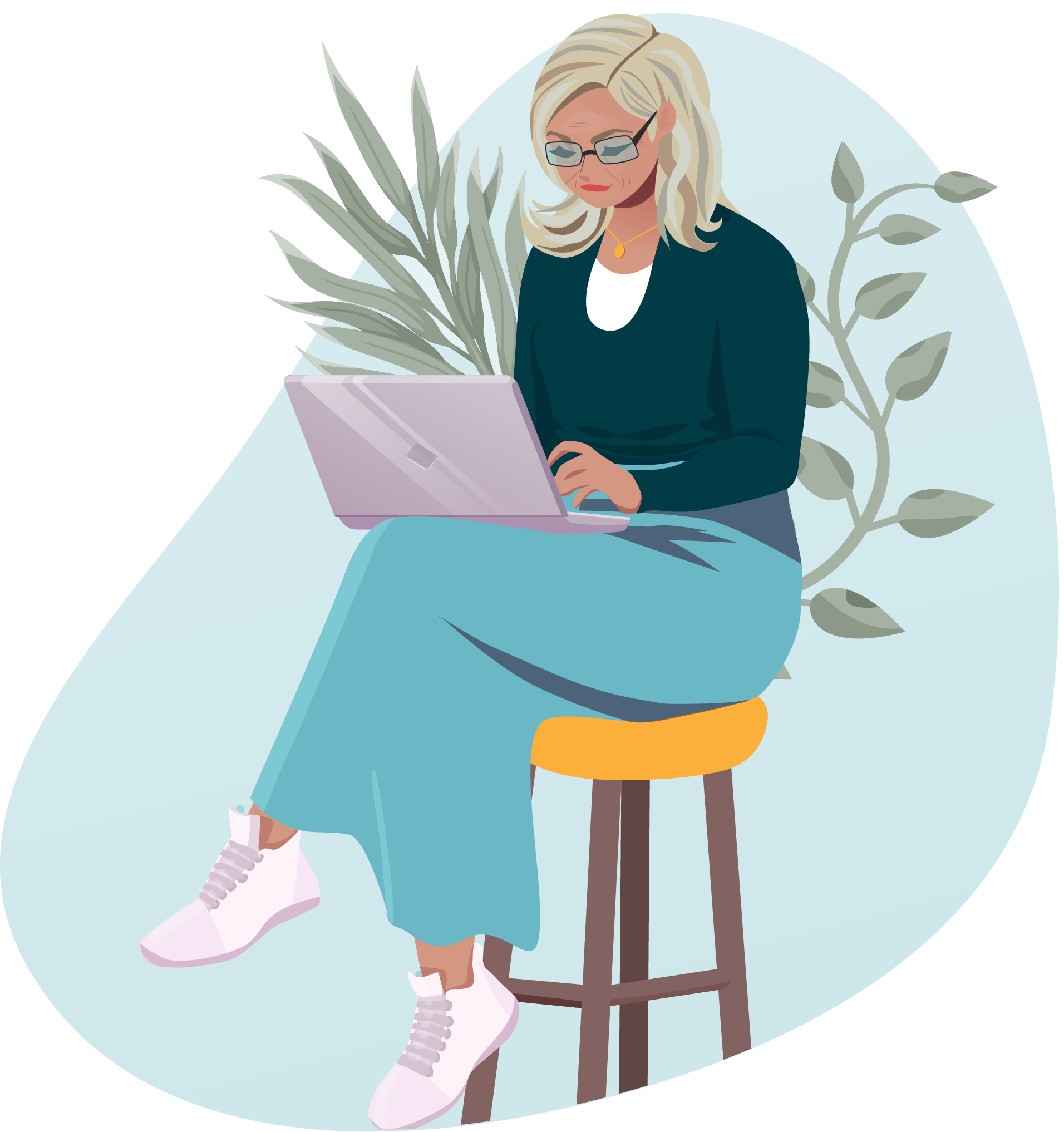COVID-19 and ovarian cancer
It is a stressful and uncertain time, but here is some key information to help keep you safe and informed. In addition to the information provided here, you can read this brochure developed by the European Network of Gynaecological Cancer Advocacy Groups (ENGAGe) for more details.
 COVID
COVID
 COVID
COVID
 COVID
COVID
Attending hospital appointments
Although there have been disruptions in diagnosis, access to care, and delivery of care, where possible, cancer treatments are continuing as normal.
Some cancer treatments suppress your immune system so you may be advised to take extra precautions to protect yourself from viruses, including COVID-19.1 Your healthcare team will take decisions about your treatment plan very seriously and will consider all options for you.
While some centres have set up COVID-free zones to minimise disruptions and backlogs, there still may be delays across some hospitals due to staff and equipment being reallocated for the care of patients with COVID-19. If you were due to have surgery, there is a possibility that this will be delayed and that your healthcare team may offer you a provisional alternative treatment plan.
Depending on the situation where you live, COVID-19 precautions may stop family members from visiting hospital while you are preparing for or recovering from surgery. This would obviously be upsetting but try to remember that it’s to protect you and your loved ones from possible infection. When planning your hospital stay, think of ways to make the time pass more quickly such as taking a book or music to enjoy. Other resources for emotional support can be found here.
It is important to know that you are at the centre of every decision made about your health, and your care is at the top of the list of priorities for healthcare providers.
Risk of complications
COVID-19 is a viral infection that may affect the lungs. Anyone with a weakened immune system is at more risk of getting very unwell if they get coronavirus.2–4 Although those with cancer are at a higher risk of experiencing complications of COVID-19 than the ‘healthy’ population, risk level is very individual to each patient.4,5
You cannot know for certain what would happen if you were to get COVID-19, but it is important to take measures to protect yourself from the virus. If you do experience symptoms and test positive for COVID-19, you may still be able to continue treatment with some extra precautions. You must get in touch with your healthcare team remotely and get their advice on what to do next.
"It is important that you still attend your appointments even if you are worried about COVID-19. Due to your higher clinical vulnerability to COVID-19, your healthcare team may make some changes to your care to avoid the risk of exposing you unnecessarily to the virus."
Safety measures
It is important that you still attend your appointments even if you are worried about COVID-19. Due to your higher clinical vulnerability to COVID-19, your healthcare team may make some changes to your care to avoid the risk of exposing you unnecessarily to the virus.4
For some patients, appointments may be changed to telephone consultations where appropriate.4 This means that on days when your appointment does not involve any important blood tests or scans, you may have a telephone consultation with your healthcare team, rather than a face-to-face visit in the hospital.
In most cases, you will be asked to come to your hospital appointments alone. If a friend or family member is dropping you off at the appointment, you may be advised that they should wait for you outside.4 However, speak to your healthcare team to understand if there are ways for them to be involved in your appointment remotely. For example, they could listen in to your conversations with your healthcare team over the phone.
As well as these measures, there are lots of things that you can do to protect yourself from COVID-19. When you go out in public it is important to follow local guidance in terms of social distancing and the use of face coverings.
COVID-19 most often is spread through droplets from the nose and mouth, so wearing a face covering can be an effective way to protect yourself and others, as well as frequently washing your hands, using hand sanitiser, and avoiding touching your face.2,3,5
People living with cancer are invited to receive their COVID-19 and booster vaccinations promptly.3 Public health experts and cancer specialists agree that the vaccines can be recommended for people living with cancer.1,6 You can receive your vaccine at any stage of your cancer pathway before, during, or after treatment. If you are at all concerned, ask your healthcare team what you should be doing.
Find out more
The most important thing to remember during all of this is that your cancer care is very much the priority of your healthcare team. Local health authorities are urging people to continue to seek the care they need during the pandemic. Cancer doesn’t wait and neither should you. If in doubt, check your local hospital’s website to see if they have any rules about COVID-19 safety.
Suggested further reading
Chemotherapy
Get more details about what chemotherapy is, how it works, and how to deal with side effects



